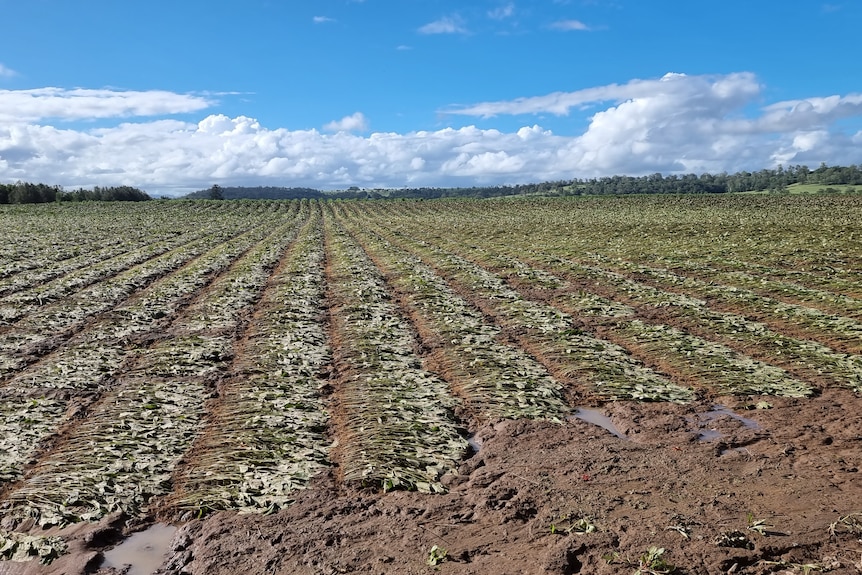



Article by: Hari Yellina
Critics claim that a clause intended to “keep rich Pitt Street farmers” from receiving emergency relief is also blocking those in desperate need of assistance. Some farmers continue fighting for $75,000 primary producer catastrophe payouts after their homes were flooded in the NSW Northern Rivers disastrous floods last month and are now facing additional floods. The subsidies are provided through state authorities under state and federal government disaster recovery funding arrangements to primary producers who meet a set of conditions, including generating the majority of their income from primary output. The flood damage cost for Monaltrie cattle farmers Tony and Linda Margan is expected to exceed $100,000, but they are unable to apply for a grant since they get money from sources other than the farm — known as off-farm income.
“Agriculture is excellent, but you can’t make enough money off your farm unless you have a really large property, which is a very expensive proposition in this region, especially not many years ago. Cattle cost $1.40 per kilo “Mr. Margan stated. The Wilsons River washed away their antique dairy bales. They suffered a three-year setback after losing a cattle crush, pumps, fencing, and grassland. Farmers, industry groups, and politicians have long called for the 50% agricultural income eligibility criteria to be modified, but to no avail. Janelle Saffin, the Labor MP for Lismore, said many farmers she encountered in the area needed to supplement their income.
“I’m pleading with the administration to loosen these rules for this occasion, exceptional circumstances.” The Commonwealth-State Disaster Recovery Funding Arrangements jointly fund the $75,000 Category D grants. Kevin Hogan, a federal member for Page, said he had requested that the criterion be altered every time a natural disaster occurred. “Many of our farmers do not qualify for this, which I believe is quite unfair. Even if 20% or 30% of their income comes from farming, I believe they are entitled to it “he remarked. Mr Hogan explained that the restriction was intended to prevent “Pitt Street farmers” from filing claims for damaged fences on fields where they did not earn any money.
While the $25,000 is better than nothing, Tony Margan believes the government continues to discriminate against smaller farms. “If I set up as a business instead of a single trader, I’d have all of my income from cattle and all of my costs from cattle, and I’d qualify for the $75,000,” he explained. Since being rescued by boat from their flooded Woodburn house, Om and Savita Jhorar have been living in emergency housing. “Our worst fear was that if we had slept, we would not have been awakened till the morning. What would have occurred if that happened?” he said. Replacing 6,000 dead macadamia trees in the orchard and nursery, 100 custard apple trees, and damaged machinery, irrigation, pumps, and fencing is expected to cost $400,000. “I had my little macadamia nursery, and the plants were ready to go in the farm, but everything washed away,” Mrs Jhorar said. The couple claimed they required government help to rebuild, but they were ineligible because they had yet to generate farm income. “I’m in that category where the farm isn’t my major source of income,” Mr Jhorar explained. “The reason is that macadamias take a long time to give fruit, and you have to wait till then.”